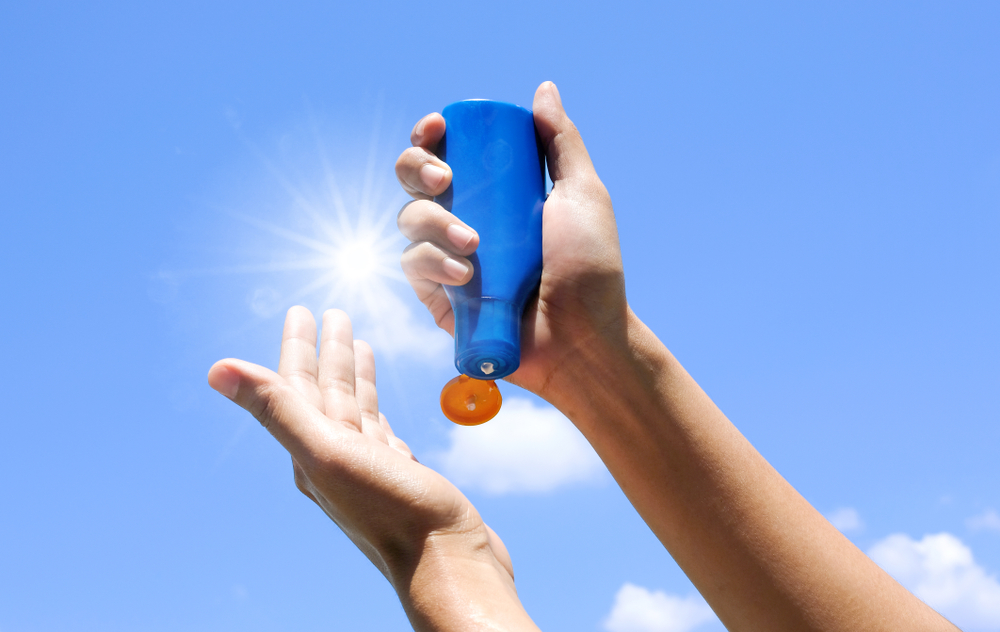Is a Higher SPF Better For Sun Protection?
Uncategorized
•
Aug 10, 2021
Reviewed by:

If you’ve found yourself asking “is a higher SPF better?” you are not alone. It would only make sense that high SPF sunscreens would provide more protection, right? Not quite. According to the Environmental Working Group’s (EWG) annual sunscreen report, anything higher than SPF 50 can give users a false sense of security and may overexpose you to the sun’s harmful rays.
To help you feel more sunscreen-confident, we are going to cover how SPF works, why high SPF sunscreens are not always better, and how to choose the best sunscreen for everyday use.
How SPF Works
SPF, meaning sun protection factor, is a measure of how long it takes the sun’s UV rays to redden the skin. This is what commonly influences a consumer’s choice of sunscreen. Although, it’s generally an unreliable measure of effectiveness. Unless labeled as broad-spectrum, SPF only tells you how well the product blocks UVB rays and not how well it’ll protect you from other harmful rays.
For the best coverage, it’s important to block yourself from both ultraviolet radiation types.
UVB rays
Sunburn and non-melanoma skin cancers are caused by the sun’s UVB radiation.
UVA rays
UVA radiation penetrates your deeper skin layers and can cause sunburns, skin aging, and some of the more serious melanoma-type skin cancers. You typically see a decline in UVA protection with a higher SPF. We’ll discuss this in more detail later!
Why is sunscreen important?
Sunscreen is used to prevent two types of burns including first-degree sunburns (pink or red skin) and second-degree sunburns (blistering) and protects your skin from the sun’s harmful UV rays. The last thing you want is to have to deal with 1st or 2nd degree sunburn healing time. But the importance of sunscreen goes beyond just preventing burns. It can also help to prevent skin cancer and skin aging.
Why is too high SPF bad?
1. Poor UVA and UVB Balance
As mentioned, a sunscreen with a higher SPF typically has a lower ratio of UVA protection to UVB protection. Although high SPF sunscreen might still prevent sunburns, they do not prevent the UVA-induced formation of the harmful free radicals that can lead to melanoma. A broad-spectrum sunscreen can help protect your skin against the dangerous effects of both UVA and UVB rays..
2. False Sense of Security
Using a higher SPF sunscreen, like SPF 100 over SPF 50, can lead to the belief that you have double the protection. This false sense of security can lead to longer sun exposure, lower chances of reapplication, and a perceived decrease in your need for shade/cover.
3. Protection isn’t much better than low-SPF sunscreens
Building off of our last point, SPF 100 blocks about 99% of UVB radiation while SPF 50 blocks around 98%. Meaning that despite having twice as much SPF, it’s only 1% more effective. There’s not as much of a difference in protection as you’d think!
If used correctly, an SPF 30-50 will be just fine for sunburn protection, no matter how sensitive your skin is.
4. High-SPF Sunscreens have higher concentrations of chemicals
It’s not too hard to guess that higher SPF sunscreens have higher concentrations of the chemicals that filter the sun. Some of these active ingredients have been shown to cause tissue damage, hormone disruption, and allergic reactions.
Since a higher SPF doesn’t reduce the risk for skin cancer and damage, the increased exposure to these chemicals isn’t necessary.
How much SPF do I need daily?
The answer to this varies depending on you, your skin, and how much time you’ll be spending in the sun. The Skin Cancer Foundation recommends choosing a sunscreen that’s in the SPF 15-50 range. SPF 15 is best for those who spend most of their time indoors or will spend a short amount of time in the sun. If you’ll be outside for longer, opt for something closer to SPF 30+.
What is the best sunscreen for everyday use?
Now that you understand how SPF works and can answer the question “is a high SPF better?”. You’re probably wondering what type of sunscreen you should use. When choosing a brand, you’ll want to look for a broad spectrum sunscreen because it will protect the skin from both UVA and UVB rays.
If you’re going to be spending time in the water or tend to sweat a lot, then you’ll also want to find something that is water-resistant.
And remember that wearing sunscreen alone isn’t going to protect your skin. Be sure to seek shade and cover up before you feel a sunburn coming on.
Head to Complete Care ER for All Your Burn Emergencies
Severe sunburns can happen even when you are wearing the right sunscreen. Depending on the severity, you may need to know when to go to the ER for a burn. Since sunburns prevent the body from releasing heat adequately, they can make you more susceptible to heatstroke and sun poisoning. What does heat stroke feel like? If your sunburn is accompanied by a high fever, blistering, fainting, vomiting, or headaches, it’s time to visit an ER.
Complete Care offers quick, compassionate emergency care with ER locations in both Texas and Colorado. Our offices are open 24/7 and do not require an appointment. So, head directly into one of our offices or give us a call today. We will take complete care of you!
More Helpful Articles by Complete Care:
